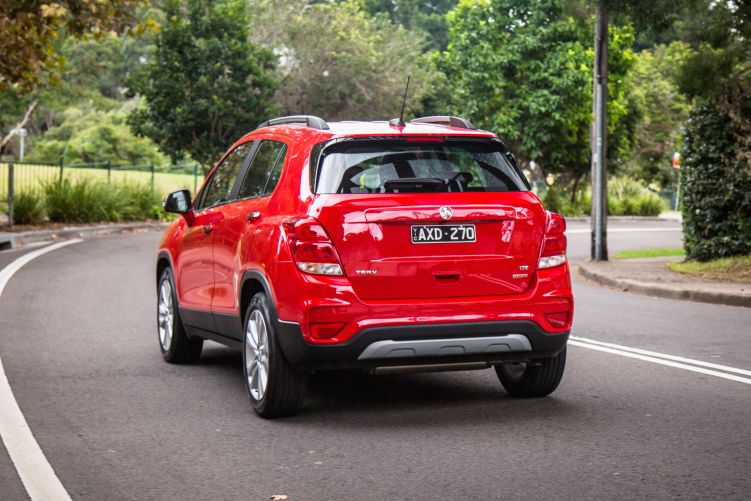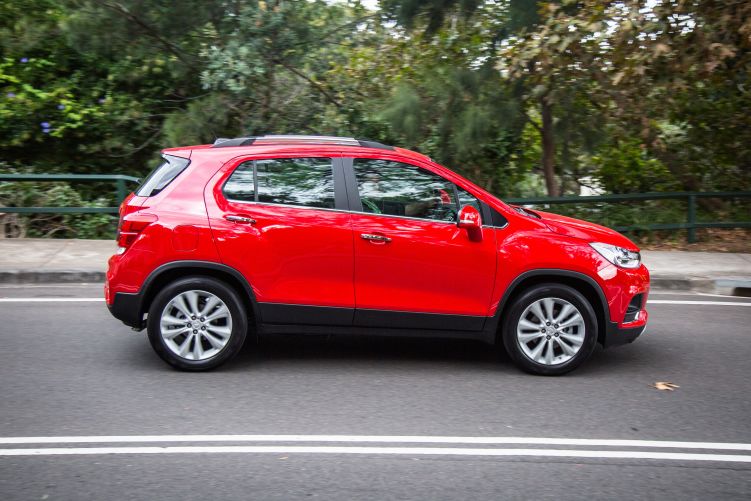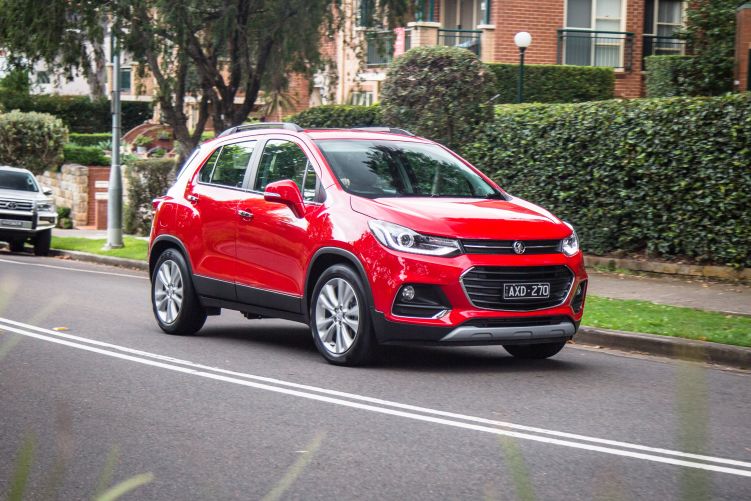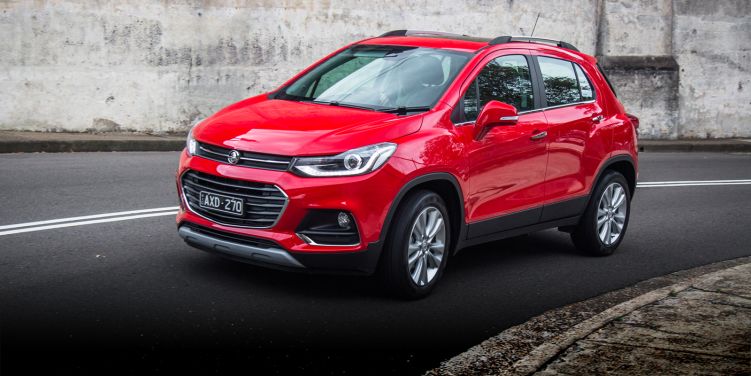Car companies are scrambling to introduce small SUVs. So why is the Holden Trax, one of the pioneers of the segment, not selling as well as it once did?
Sales of the Trax have hit the brakes – down by a third this year in one of the few booming segments of the market.
Introduced in 2013 – six years ago – the Holden Trax was one of the first compact city SUVs.
The appeal? It can fit in the same size parking space as a hatchback but has the tall driving position of an SUV. And it’s relatively fun and economical to drive.
The Trax has had a series of updates each year, although its appearance hasn’t changed since a mid-life facelift in 2017.
It got a new nose with sleeker headlights, available LED tail-lights, and new wheels.
The 1.4-litre turbo engine and four-wheel discs were spread across the range on all but the base model 1.8-litre manual.
Since then, however, rivals have introduced newer, safer and more technically advanced models.
The recently updated Trax range now comes with 17-inch alloys instead of 16s and starts from $24,490 drive-away with three years free servicing. It has previously been available at a long term drive-away offer of $22,990 drive-away. Sometimes even lower.
The model tested here is the top of the range Trax LTZ, priced at $28,990 drive-away.
The LTZ comes with 18-inch alloy wheels, a sunroof, push-button start and leatherette sports seats.
Apple CarPlay, Android Auto and digital radio are also included. It’s also one of the few cars on sale today with a household power socket in the centre console. However, it falls short when it comes to advanced safety tech.
Although the Trax has a five-star safety rating, that score was from 2013, when the criteria for top marks wasn’t as strong as it is today.
Read more: Holden Trax news, reviews, comparisons and videos
If tested to today’s tougher standards, the Trax would score four stars at best due to the absence of now essential safety systems like autonomous emergency braking.
The LTZ has blind spot warning and rear cross traffic alert but that’s it for advanced safety. And these extras aren’t available as options on cheaper models.
It has a rear camera, but unfortunately the vision is milky, especially at night.
Other compact SUVs in this price range are available with advanced safety aids such as AEB, radar cruise control, lane keeping assistance and speed sign recognition.
So at $28,990 drive-away the Trax LTZ faces safer and better equipped competition.
The base model Trax LS, while it also lacks the latest advanced safety aids, at least is priced closer to rivals that also miss out on the same tech.
As with most cars sold by top 10 brands, the Trax is covered by a five-year/unlimited kilometre warranty.
Service intervals – 12 months or 12,000km, whichever comes first – are slightly shorter than the industry average of 12 months/15,000km.
The individual service costs are slightly higher than they are for brands such as Toyota, Hyundai and Kia, at $269 for the first visit, and $319 for each of the second and third visits. The fourth year/48,000km service climbs to $429 and the fifth service is $369.
On the road
Part of the appeal with cars like the Trax is the tall driving position to give you a better view of the road ahead.
And the compact size bumper to bumper makes it easier to squeeze into tight spaces.
The cargo space is pretty decent for a small-ish car, and the high “hip point” make it easier to get in and out of the Trax.
It also has decent storage space in the front and rear doors, although the centre console is slim.
The 1.4 litre turbo four-cylinder engine is zippy, with outputs rated at 103kW at 4,900rpm, and 200Nm at 1,850rpm. While those figures don’t stand out on paper against most rivals, it has good power delivery across the rev range and is one of the perkiest cars in the segment
The only trade-off is that it requires 95 RON premium unleaded, so you need to budget for that in your fuel costs.
The six-speed auto is intuitive. Best of all, it’s the conventional type of automatic rather than a twin-clutch (which can shudder between gears) or CVT auto (which can drone and feel like they’re slipping), so it’s a smooth operator.
The large wheels might look the business but, thanks in part to the low profile tyres, it feels too firm over bumps. The rear end is particularly sharp. It would benefit from some further finessing.
Read more: Everything Holden
If you prefer comfort, the base model Trax LS is the better option thanks to its smaller wheels and chubbier rubber.
Verdict
The Holden Trax makes more sense in base model guise when the price eventually settles back to its long term average of $22,000 to $23,000 drive-away.
The $28,990 flagship Trax LTZ falls short on advanced safety that comes standard on most mainstream rivals in this price range.